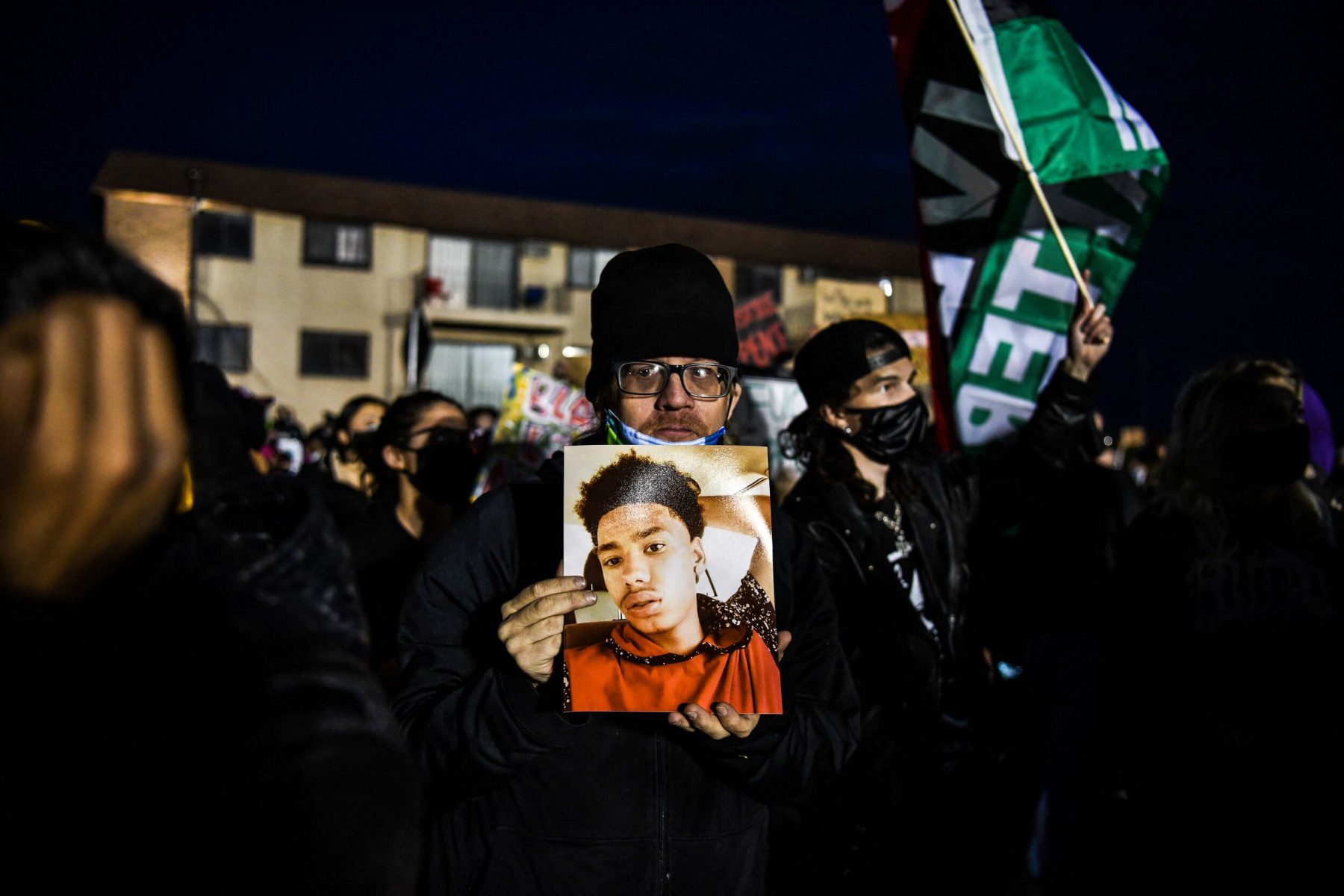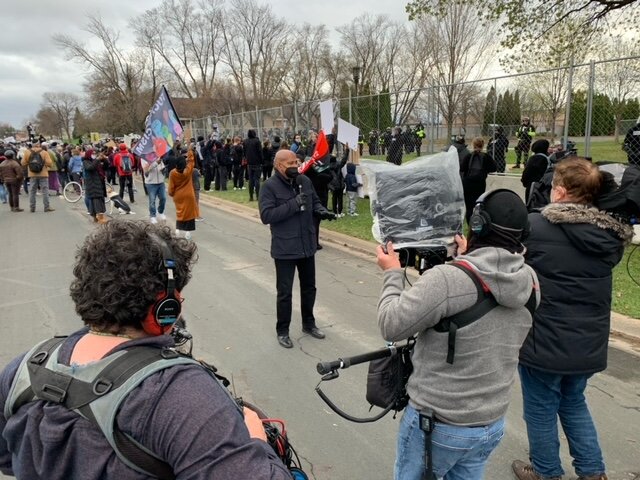
The long, menacing line of police in riot gear emerged out of the darkness.
“Get on the ground… get down now!” they yelled, while pointing their riot batons to the ground. Another night covering the protests in Brooklyn Center, Minnesota, over the police killing of 20-year-old Black man Daunte Wright was coming to an upsetting ending.
I sat on the wet ground in a gas station parking lot with my hands raised above my head and looked for the rest of the team, checking that all six of us were still together: a photographer, sound technician, producer and two security guards. We were there on a two-week reporting trip to film live reports for MSNBC’s prime time shows and to gather material for reports on NBC’s other platforms.
We should have seen it coming. We were out after the 11 p.m. curfew the mayor imposed as protests erupted. The police had pulled the same maneuver the night before. Hundreds of officers circled the crowd of protestors and media, and at the designated hour moved in.
I could see buses down the road. I just knew we were going to be loaded up and held somewhere for countless hours. The police were heavily armed, fingers on triggers. I hoped and prayed nothing dumb happened, that none of them would get angry or ticked off about whatever.
Fortunately, I had my New York Police Department media credential, which I always carry with me every day just in case. I took it out, waved it at the line of cops and screamed, “We are media… NBC News!” The officers tightened their line. No response.
It was as if I was speaking a foreign language.
We had been out for several nights last week covering the protests, and it had fallen into a bit of a routine. Hundreds of people would gather late in the afternoon. Then as night fell the protests would begin. Eventually, under the cover of darkness, clashes between protestors and police would erupt. Protestors would hurl rocks, bottles and anything else nearby at police and the National Guard members stationed in front of the fortified police headquarters. Police response ranged from patience to tear gas, while deciding how aggressively to enforce the curfew. Some nights they arrested dozens of people. Other nights they arrested none.
One of the most challenging moments came during the Rachel Maddow Show one night. We were on the air live talking about the protests and at one point panned the camera to show dozens of looters rampaging through several nearby stores. We tried to show that as discreetly and quickly as possible. Obviously, no one wants to be seen on live TV committing a crime.
Sure enough, a few folks in the crowd weren’t happy. They confronted us, yelling and screaming about how we should be talking about the protests, not the looters. There was some pushing and shoving between a few people in the crowd and our security team. I could see all of this happening around me. I tried to deescalate things while live on the air, and while trying to report what was happening. It was intense, but through it all, I didn’t feel it was out of control.
I was able to get the attention of a woman in the crowd, and calmly ask her about what she and the other protestors wanted. I gave them the floor and let them vent for a while. As she started talking, everything calmed down. The crowd paused to listen. After a few minutes, I ended the interview. The crowd was satisfied with what they heard, and we all moved on.
Every night was different, because each night the crowd of protestors varied. There were people genuinely concerned about the death of Daunte Wright and holding the officer who killed him accountable. Police have said the officer mistakenly fired her gun instead of her Taser. The officer, Kimberly Potter, has been charged with second-degree manslaughter. And there were other protestors wearing gas masks and protective gear who brought wooden pallets and moved garbage cans to use as protection while engaging police.
Through it all, safety was our paramount concern — that, and of course, reporting and telling the story of what was happening the best we could. Some nights that meant being right in the middle of things. Other nights we stayed on the perimeter. Our team kept talking through every situation. Our thresholds for dealing with violence varied. We didn’t take unnecessary chances. Knowing how to cover protests like these is more art than science, more instinct than intellect.
I’ve always told my mother that situations look worse on TV than they are in real life.

Why do we put ourselves in such dangerous situations?
I do it when I think the issue or controversy is important enough. I feel a responsibility to do what I can to contribute to the national conversation about events like Wright’s killing, and those of so many other men and women of color at the hands of police.
It can be exciting and exhilarating. You often feel a rush of adrenaline. There also are long hours of utter boredom waiting for something to happen. I especially hate when it’s rainy and cold. There were snow flurries some nights, even though it was in April, which I know is just the way it is in Minnesota. There are lots of days that turn into night, and sometimes into the next day.
And that’s exactly what I feared would happen while we were sitting on the wet ground in that gas station that night facing a line of Minnesota state police. Less than half an hour later, I finally got the attention of a police supervisor. He called me forward, inspected my NYPD media credential, photographed it, my driver’s license and me. I then pointed out the other members of our team. One by one we were all permitted to continue our work.
The officers acted professionally and so did we.
There had been some ambiguity about whether journalists were exempt from the curfew. Eventually, a judge ruled that the police could not detain or harass journalists doing their jobs, at any hour of the day or night.
The protests may well continue in Brooklyn Center, as the Wright family continues to seek justice and accountability. And since that first week of demonstrations, there already have been more protests around the same set of issues in more cities across the country.


